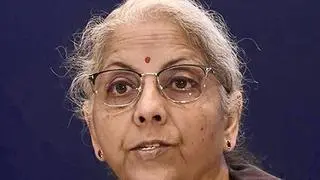Germany, India’s largest trading partner in the European Union, is bullish about prospects here.
In an exclusive interview to Business Line , the newly appointed German Ambassador Michael Steiner outlines what the recent decision to liberalise FDI in aviation and retail means for German business.
Excerpts:
What kind of opportunities are the Government’s decision to liberalise foreign direct investment rules in aviation and retail creating for German businesses?
In India, there is a reforms policy which has started, and we have to see whether it is sustainable, whether it is brought through Parliament, but the policy has started. This has had an effect. CEOs in Germany see the newspapers and feel something is happening.
Is this the message that you are getting from German industry?
Before I left Germany to take up my post here, I spoke to CEOs in medium and big companies. Their thinking was not to put all the eggs in one basket. They said India is the future, but were hesitating because of all the bad news. Now just because the reforms process has restarted, it does not mean that people will jump in. The process needs to be sustained. This week we have the Asia-Pacific conference in Gurgaon, in which 800 businessmen are going to take part. This conference is about German industry talking about Asia. Of course, they will try to find out whether these times will continue. They want the good times to continue because every decision maker sees India both in the actual situation and also as a prospective situation. India is a country which is going up, not down. The question is how steep is the ascent.
How long are the Germans willing to wait?
The world is full of countries looking for long-term investments. India has a huge advantage over a number of countries, as its democratic system provides long-term stability. But India has another asset in its enormous market. This is an ideal moment because if these investors had come half a year ago things would have been very bad, because I think the country and the executive were not ready to embark.
What are the sticking points in the free-trade agreement (FTA)?
A free trade and investment agreement is not something for the next year or even for the next five years. The time horizon for a programme like this is 15 years. That means you have strategic interests. But if you come to negotiations on detailed issues you have interests of the auto makers in Europe and here. And those are not necessarily identical, because they are on different levels of IT access. Free trade and investment are very broad issues. It is not about cars or access to IT or insurance. It is what I call the two-way highway between Europe and India, as potentially it covers all the issues. It also covers reforms issues. That is why I call it the outer flank of inner reforms.
What will it mean from the EU side?
The German automobile industry has an interest, because we are talking of an FTA to have no taxes on their cars. Indian automobile industry in the end has the same interest, but for the time being it wants to be protected. I think that India has a fair point if it wants to have better and more access to European markets.
By when is an FTA possible?
I think that the agreement in substance should be ready by early spring next year, by when you should have the overall agreement. Then it needs to go through the European Parliament. So it will take quite some time.








Comments
Comments have to be in English, and in full sentences. They cannot be abusive or personal. Please abide by our community guidelines for posting your comments.
We have migrated to a new commenting platform. If you are already a registered user of TheHindu Businessline and logged in, you may continue to engage with our articles. If you do not have an account please register and login to post comments. Users can access their older comments by logging into their accounts on Vuukle.